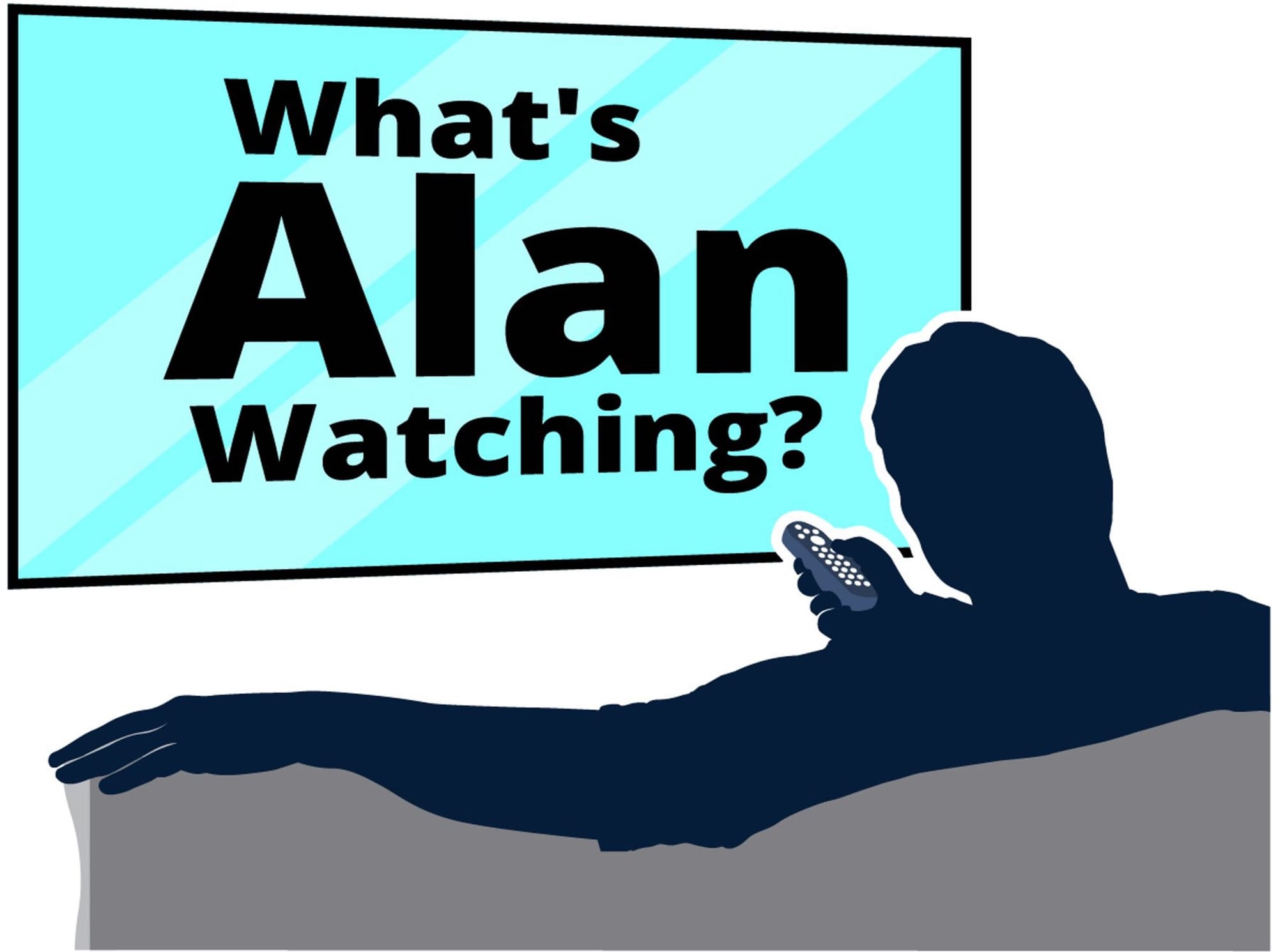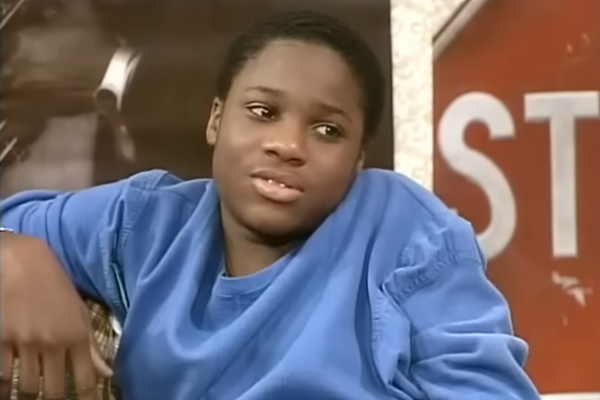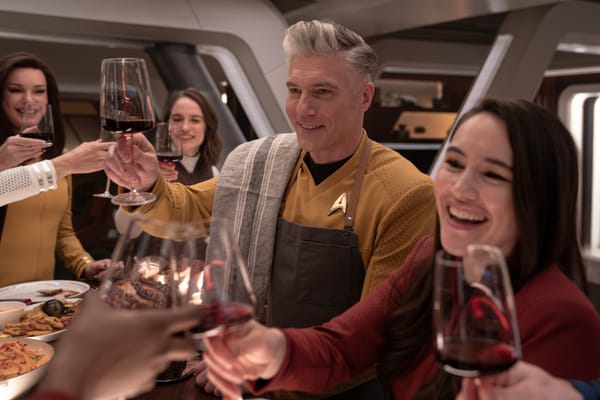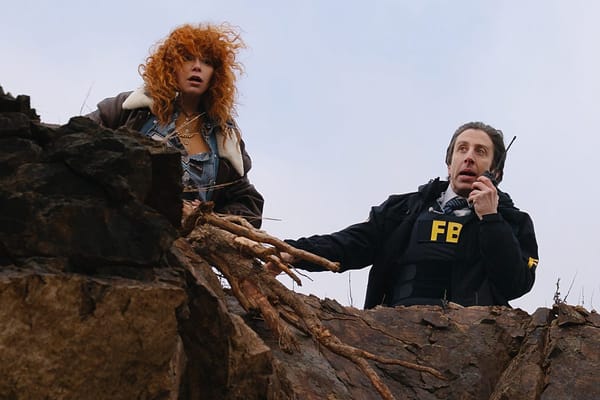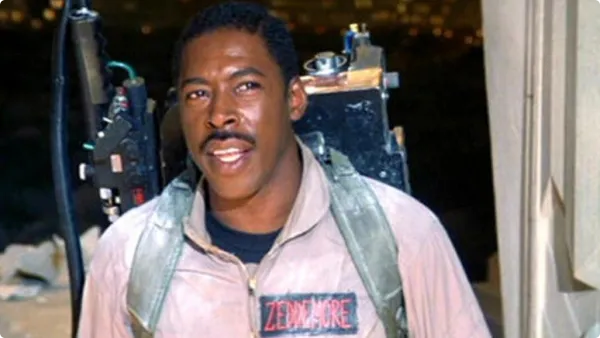Noah's arc
'Fargo' creator Noah Hawley takes on 'Alien: Earth,' 'King of the Hill,' returns, plus 'Star Trek' goes to the holodeck, 'Chief of War,' and more
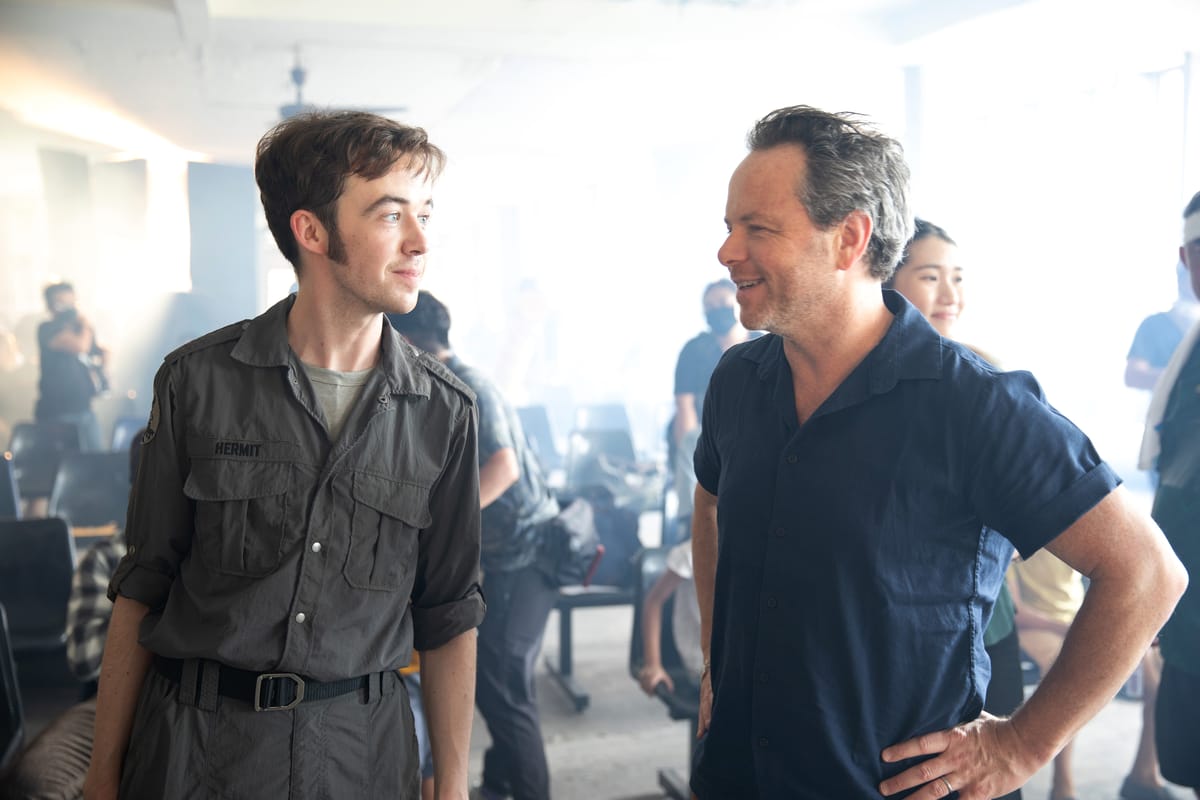
This week's What's Alan Watching? newsletter coming up just as soon as my skirts and my lines both get shorter...
The franchise man

A relatively quiet TV summer is about to get noisy next month with the August 12 premiere of FX's Alien: Earth, an ongoing series set in the Alien universe — at roughly the same time as the first film — and created by Noah Hawley. I went to his production company offices in Austin to interview Hawley about how he's developed this unlikely niche as the guy who adapts seemingly unadaptable properties, from Fargo to Legion and now to this.
Hawley's a fascinating guy. Very smart, very articulate, soft-spoken, but also extremely confident in his own abilities — even if, as many of my other interview subjects for the feature admitted, it's not always easy to figure out how what's in his head is going to translate to what's on screen. We also spoke about the various bumps in his attempt to become a filmmaker. And he was much more open than I was expecting about his complicated relationship with his twin brother Alexi, who created The Rookie and The Recruit. It's two guys with the same DNA, doing the same job in the same industry, and making wildly different kinds of shows, and clearly not close.
I don't get to do this kind of feature writing very often, but I really like how this one turned out. Alien: Earth reviews are embargoed until August 5, so I can't express an opinion on it just yet. But I imagine people will be talking about it a lot a few weeks from now.
I tell you what!
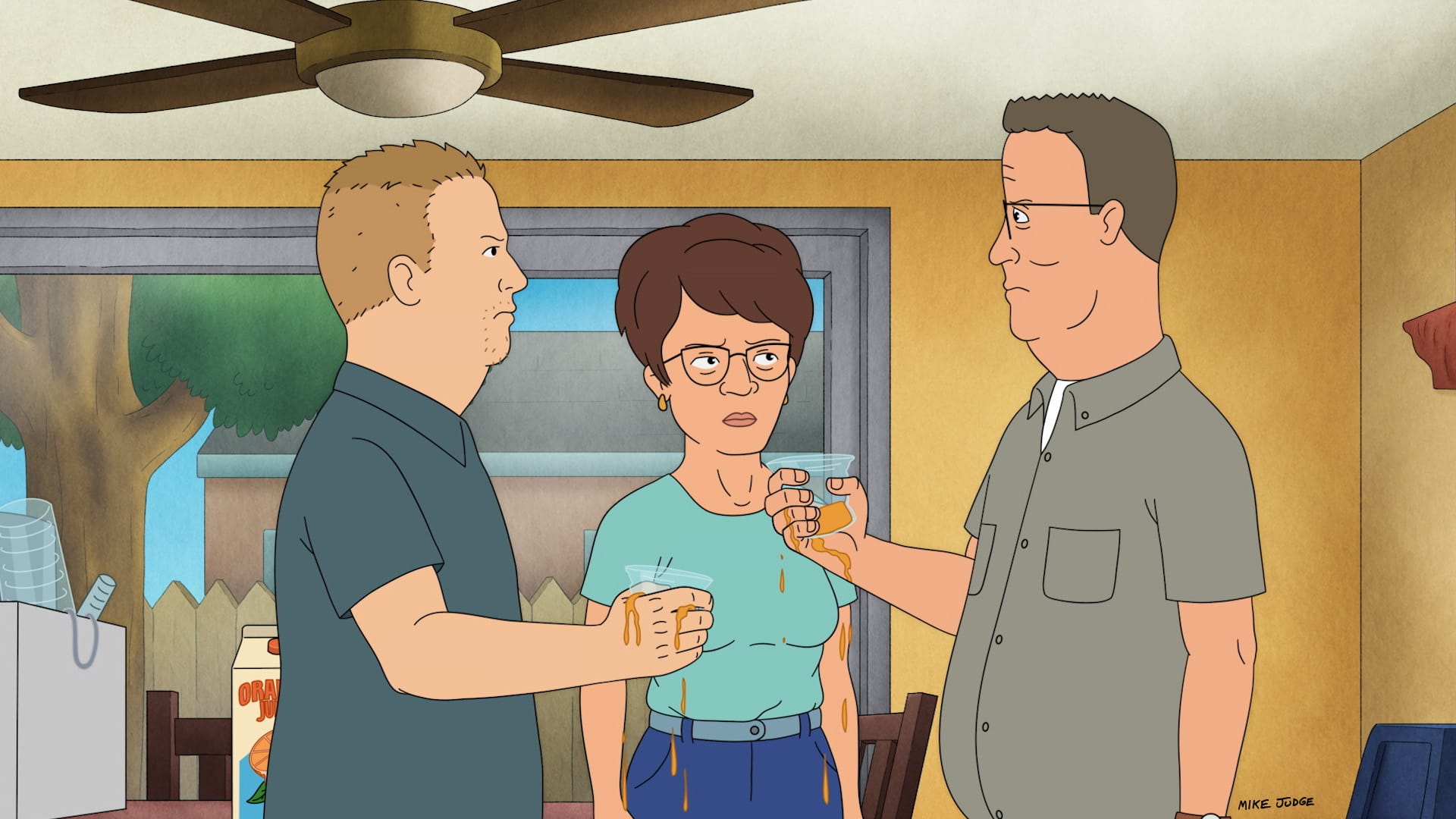
I'm fundamentally skeptical of all series revivals, as I can still count on one hand the number of them that actually justify their existence as something other than a desperate stab at exploiting nostalgia for a familiar brand name. Very few of them put any real thought into how the characters, the tone, or the series' voice needs to adjust to acknowledge all the time that's passed, and all the ways the world has changed since we last saw them.
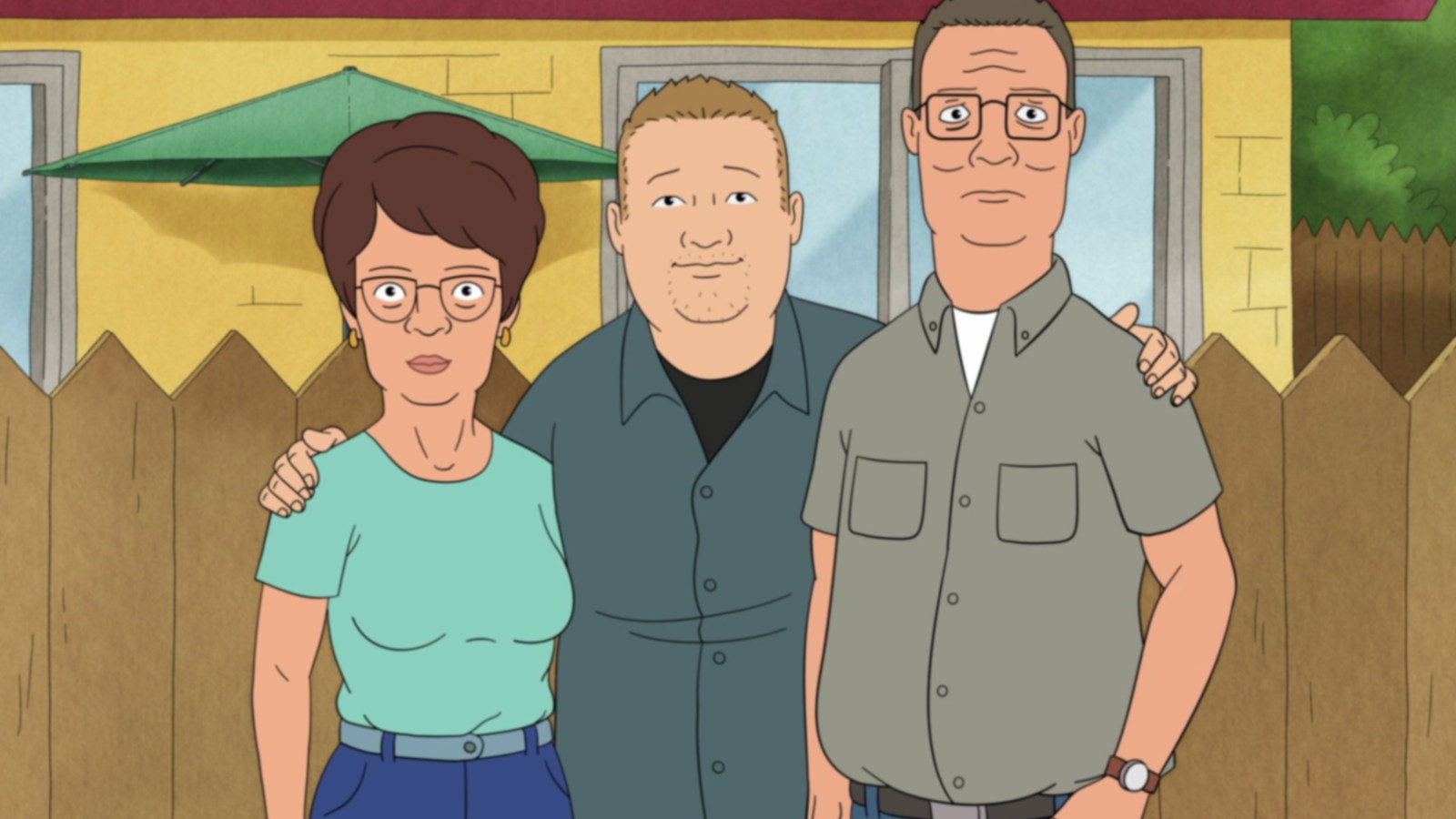
But to Party Down, The Conners, Phineas and Ferb, and Twin Peaks: The Return, we can now add King of the Hill, which returns for a 10-episode, binge release season on Hulu on August 4. The new season moves the characters forward in something close to real time, and is set in the present day. Bobby is 21, running his own restaurant in Dallas. Hank and Peggy are back from a decade of Hank working overseas, and Hank struggles to adjust to a world where being a conservative means something wildly different than it did in the show's peak years. The new season isn't perfect, but there are a lot of laugh out loud moments — including a great callback to the original series' funniest gag — and Mike Judge, Greg Daniels, and new showrunner Saladin K. Patterson have done a good job thinking through how Hank and the others function in what's become of modern America.
I interviewed Patterson (who was the showrunner of The Wonder Years reboot with Dulé Hill, and before that a writer on Dave) about the changes, and also about some of the tragedies associated with the new run, like the deaths of voice actors Johnny Hardwick and Jonathan Joss.
Hail to the Chief of War?
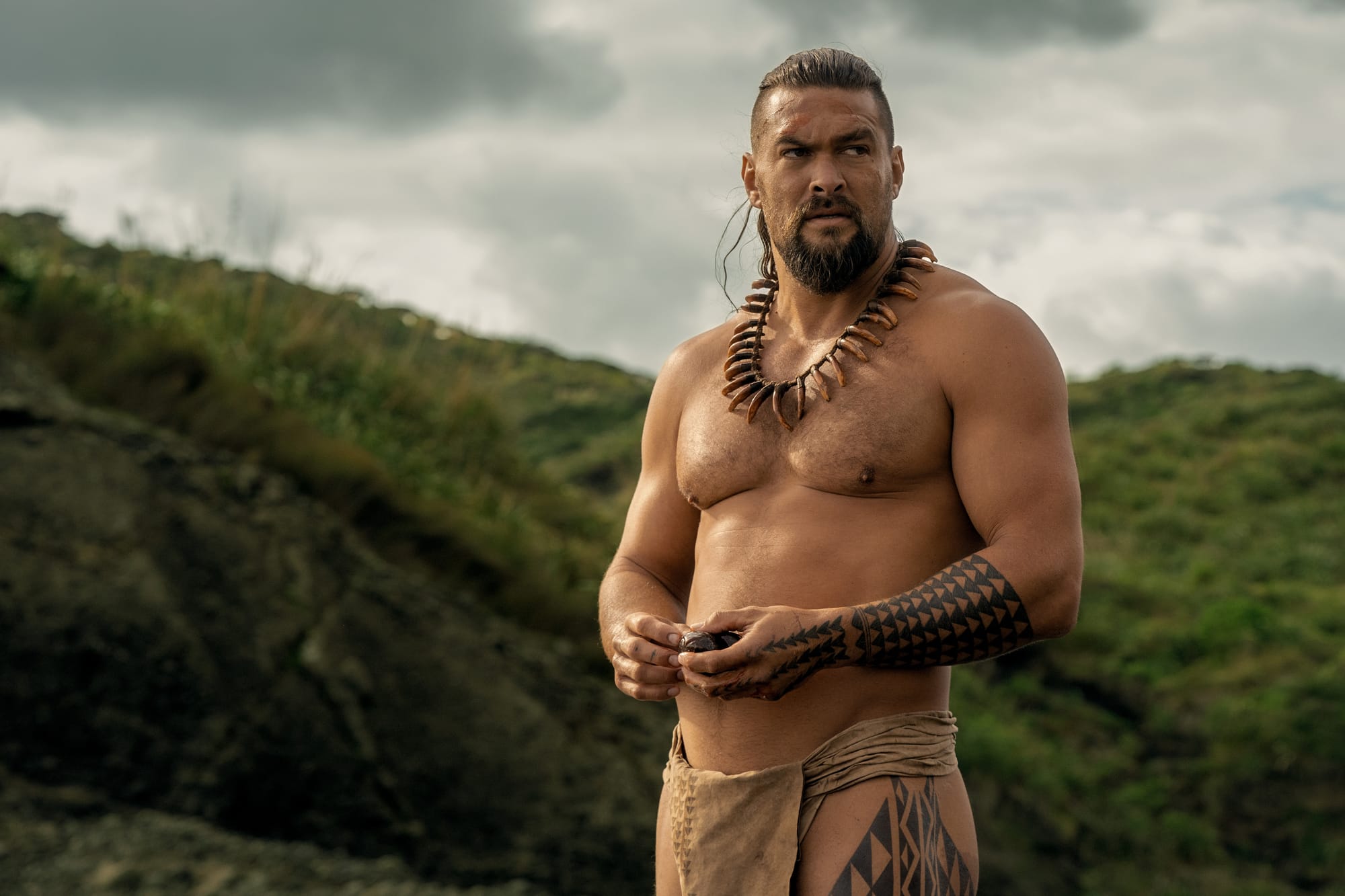
The idea behind Apple's Chief of War, co-created by and starring Jason Momoa, is an intriguing one: a sprawling historical epic about the unification of the Hawaiian islands in the late 1800s, along with the looming threat of white colonization, structured similarly to Shōgun.
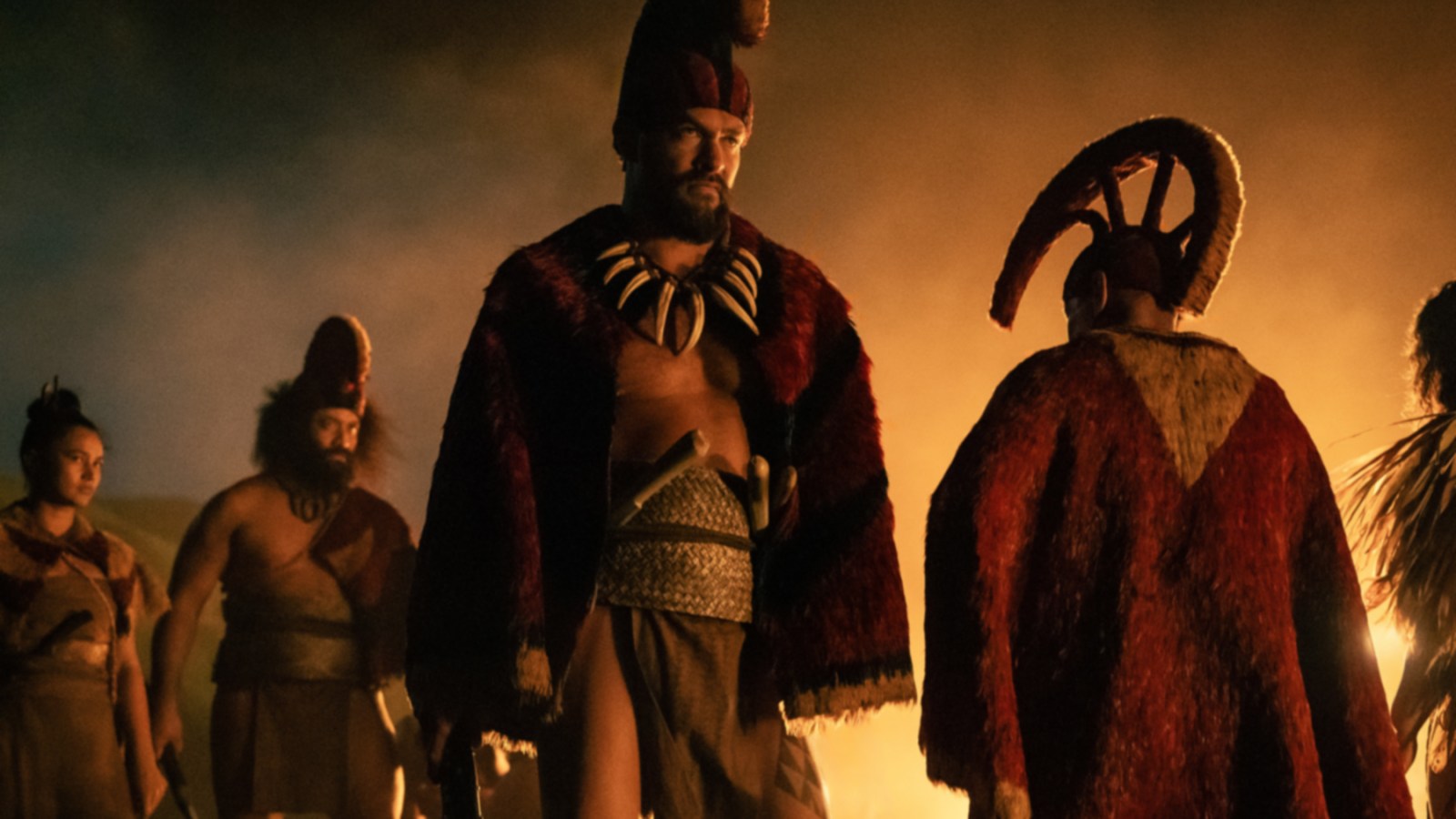
The execution, though, is mixed, in part because, aside from the warrior Momoa is playing, most of the show's major historical figures — and particularly King Kamehameha — are fairly one-note, with the same points about each of them repeated over and over across nine episodes. That said, when it goes into action mode, there's some exciting stuff, particularly in the finale, which stages a big battle at the base of an active volcano.
We are experiencing technical difficulties. Please stand by.
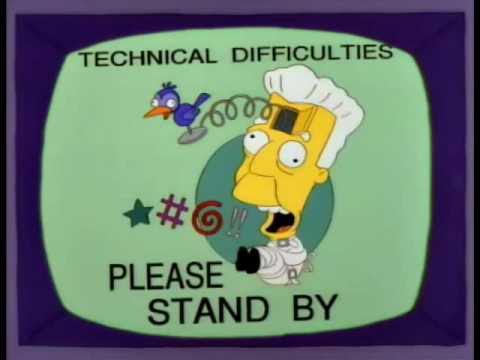
With any move to a new physical or virtual home, there are bumps along the way. Last week, in going through the steps to eventually set up the paid bonus tier, I accidentally turned it on, and some of you already signed up and paid for that tier. But after looking at the August TV calendar, plus my own calendar, I had already decided to save the paid tier for after Labor Day. So for now, we've turned it off, and everyone who signed up will be getting a refund. Apologies for the inconvenience, but I'm already cooking up some good material for the start, between Ask Alan questions (which you can still send to the WAW? emailbox), a look behind the scenes at the unreleased second season of Too Long; Didn't Watch, and some other deep dives. When it goes live next, it will really be going live.
Star Trek: Strange New Worlds recaplet: "A Space Adventure Hour."
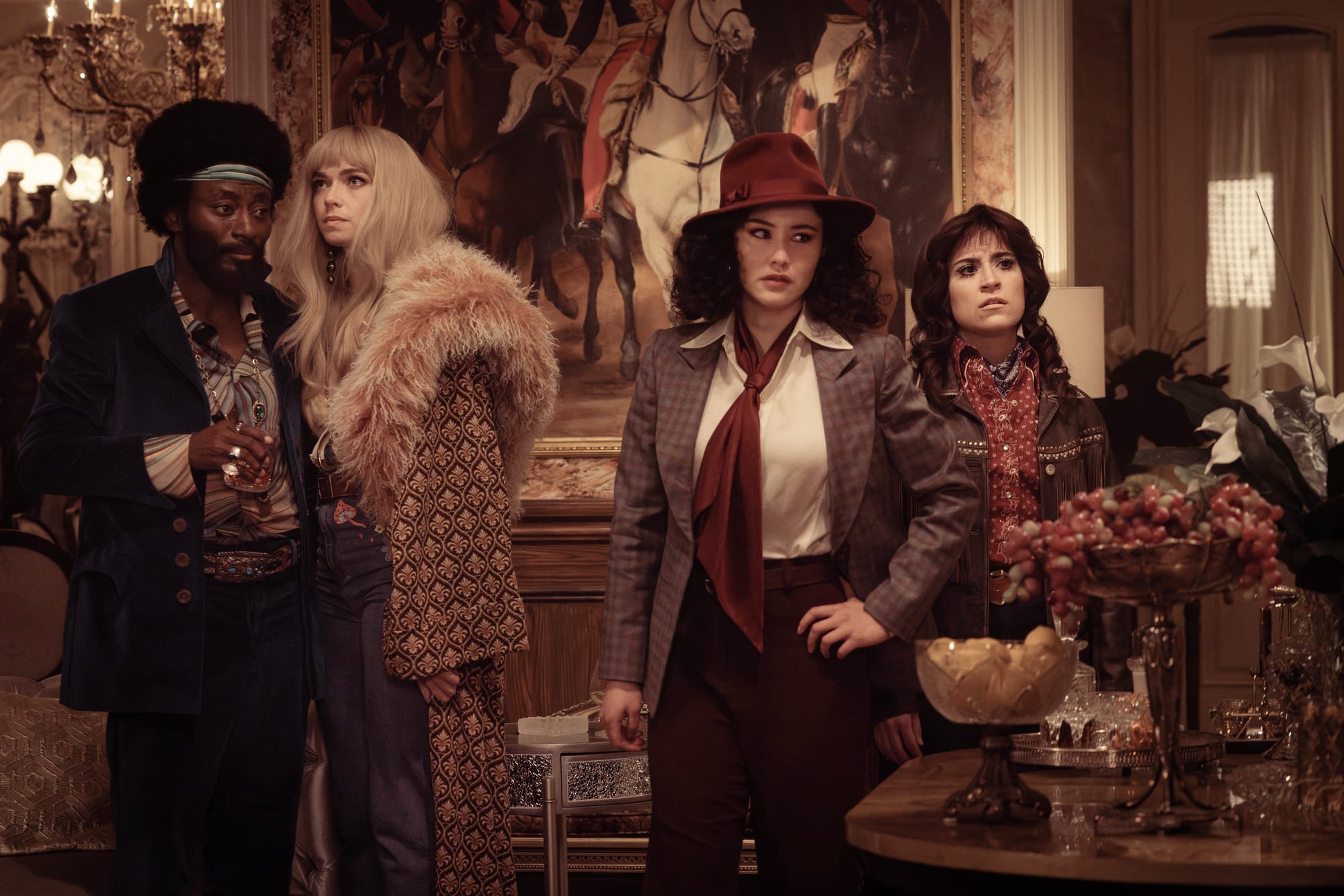
When Star Trek: Voyager debuted, the key differentiation from The Next Generation was supposed to be that the ship was stranded in uncharted territory, lacking easy access to basic supplies, needing to conserve power and other consumables, and not being able to have luxurious adventures like Picard and company. But almost immediately, the show established that the holodeck's power supply was both separate from everything else, and seemingly limitless, which seemed like a clumsy attempt to ensure that the Voyager writers could keep doing the kind of holodeck episodes that TNG fans loved. By itself, that choice undercut nearly all the attempts to paint the crew's situation as notably more desperate than life on the Enterprise.
"A Space Adventure Hour" actually goes out of its way to explain at least some of that, as the episode ends with Scotty theorizing that the only safe way for holodecks to function on a starship is if they have a wholly independent power supply. But mostly, it's just as shameless an attempt to tell a particular kind of familiar Star Trek story, even though in this case, it's one that takes place a century before holodecks are supposed to be in Starfleet use.
So that's silly in and of itself, as are this episode's mash-up of a half-dozen other ideas from Nineties Trek. La'an, like Jean-Luc, turns out to be a huge fan of a 20th century detective novel series, for instance. The near-fatal flaw in the holodeck's maiden adventure is basically the same as the one from "Elementary, Dear Data," where Geordi's poor choice of words in setting up a Sherlock Holmes adventure inadvertently turns Professor Moriarty into a sentient being(*). And the meta speeches near the end of the holodeck story about the value of science fiction shows like this was very much in the vein of the climax of the classic Deep Space Nine episode "Far Beyond the Stars," where Sisko finds himself living the life of a 1950s sci-fi author.
(*) In Star Trek: The Undiscovered Country, by the way, Spock said, "An ancestor of mine maintained that when you eliminate the impossible, whatever remains, however improbable, must be the truth." This is a famous Holmes quote, and it seemed at the time like an in-joke by writer/director Nicholas Meyer, who had previously written multiple books about Holmes (plus the screenplay adaptation of one of them, "The Seven Per-Cent Solution"). Here, the SNW version of Spock phrases a similar reference in a way that suggests that his ancestor on his human side isn't Holmes, but author Arthur Conan Doyle. Makes more sense, but is less amusing.
Having said all that, "A Space Adventure Hour" also served as an argument in favor of why the Voyager creators made the choice they made about the holodeck. It makes no sense that the Enterprise in the 23rd century would have one this advanced, nor that Voyager would be able to keep using its own in the Delta Quadrant. Nor, for that matter, that Starfleet wouldn't simply ban the technology given how often it endangers crewmembers' lives. Yet holodeck stories (or, on DS9, holosuite stories) are fun. I can't deny that. They're an excuse to let the actors ham things up, with Paul Wesley particularly liberated in the opening scene, where he finally gets to go full William Shatner, after running much too far in the other direction with his performance in prior episodes. They're ultimately no more ridiculous than a lot of other Trek tech. And they're almost always bursting with energy.
I do, though, have some qualms about this specific tale that have nothing to do with the larger point. The first is that, as much as I enjoyed Wesley in the teaser, and the ridiculous outfits that Jess Bush and Melissa Navia had to wear, our glimpse of The Last Frontier felt a bit too unkind to the original Star Trek series. Yes, there's a lot of dumb and campy things from the Sixties seasons, and some outright awful episodes. But if you're only going to give us a taste of this pastiche of it, maybe don't lean all the way into the worst elements of TOS?
The second is that all of this is ultimately an excuse for La'an and Spock to begin dating. Not only does this raise the question of when she'll have a romance with a young Leonard McCoy, to complete the TOS trifecta, but it continues this season's trend of being overly focused on romantic storylines among the crew. Romance is absolutely a part of Trek, and a lot of these actors — Christina Chong and Ethan Peck included — have good chemistry together. But just as Holo-Chapel complains that people only care about her love life, it feels like the SNW writers have prioritized these kinds of stories above everything else. And since, again, we only get 10 episodes a season, the deemphasis on space exploration in favor of who's hooking up with whom is frustrating.
But, again, I was entertained by this one in a vacuum, and not just because the closing credits revealed that Jonathan Frakes directed it, followed by a fake blooper of Holo-Kirk trying and failing to mount a chair from behind like Will Riker. Holo-Pike at one point quips, Do you know what they say about a show after the first season? Practically writes itself." The same could be said of almost any Star Trek holodeck story.
That's it for this week! What did everybody else think?
